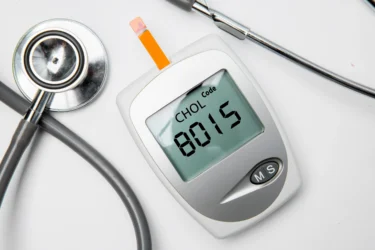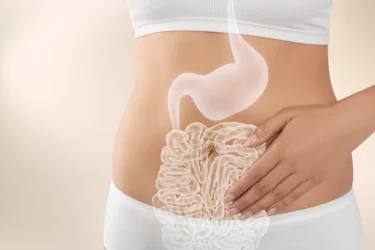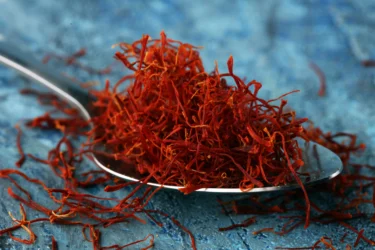Saffron (Kesar): Uses, Benefits, Side Effects and More!
By Dr Rajeev Singh +2 more

Get,

to manage your symptom
Get your,


4 Cr+ families
benefitted

OTP sent to 9988776655



You’ve successfully subscribed to receive
doctor-approved tips on
Whatsapp

Get ready to feel your best.

Hi There,
Download the PharmEasy App now!!


Register to Avail the Offer
Send OTPBy continuing, you agree with our Privacy Policy and Terms and Conditions

Hi There,
Sign up on PharmEasy now!!
Trusted by 4 crore+ families

OTP sent to 9988776655



You have unlocked 25% off on medicines




Code: NU25
By Dr Rajeev Singh +2 more
Table of Contents
Saffron, the most expensive spice in the world, is a tiny part of a fragrant flower which smells like honey. Scientifically known as Crocus sativus, it belongs to the family Iridaceae. It is one of the oldest spices cultivated by the man since Saffron, the most expensive spice in the world, is a tiny part of a fragrant flower which smells like honey. Scientifically known as Crocus sativus, it belongs to the family Iridaceae. It is one of the oldest spices cultivated by man since 1600 to 1700 BC. It could have originated in Middle East areas and Central Asia or Southwest Greek islands. It is widely cultivated in many countries such as China, India and the Middle East regions. It is a perennial herb growing 10-25 cm tall and when autumn begins, it blooms into purple-coloured flowers. The vivid red-coloured three filament ‘stigma’ of this flower is dried to make the spice ‘saffron’1.

Saffron has a good source of nutritional components and vitamins that are given as follows:
Nutritional value of saffron per 100 grams2
Vitamins present in saffron per 100 grams2
Due to the good effectiveness of Saffron, it has captured the interest of researchers all over the world. It is said that Saffron may even replace some synthetic medicines3. The properties of Saffron are:
Various studies suggest the potential activity of saffron in nervous system disorders such as Alzheimer’s and Parkinson’s disease. However, more large-scale studies are needed to confirm these activities6.
Dr. Siddharth Gupta, B.A.M.S, M.D (Ayu)
Saffron has a range of benefits that are described as below.

Since ancient times, Saffron has been used for skin conditions. It may help improve complexion, decrease dark circles under the eyes, refresh the face and may help manage acne and infections of the superficial layer of the skin (erysipelas)1,4. It may also help absorb the skin-damaging UV rays of the sun and can be used as a natural sunscreen. Saffron may help prevent skin cancer1. It may help reduce the production of melanin pigment in the skin, helping in lightening the skin. It may also help manage melanoma (a kind of skin cancer that affects the cells that produce melanin)1. These benefits have been observed in lab studies, and more trials are required to support the use of saffron in human skin conditions. Therefore, you are advised to avoid using saffron for any skin condition without consulting your healthcare provider.

Saffron potentially reduces cholesterol levels in the blood, which reduces atherosclerosis (a condition in which cholesterol gets deposited on the arteries)1. These properties of saffron may help with blood cholesterol levels, but more studies are required to support its use. Therefore, if you are suffering from high blood cholesterol, you need to reach out to your doctor and get a consultation. Avoid using saffron to control blood cholesterol without consulting your doctor.

Saffron may act as a tonic for the digestive system. It may help curb the appetite and the formation of gases in the intestine. It also may help to manage amoebic dysentery1. Using saffron in the diet may help ease digestion, but it is better to get help from the doctor if you are experiencing any digestive issues.

Saffron may be used to manage various eye problems such as cataracts, diseases of the cornea, soreness of the eyes and eye diseases occurring due to ageing. It was used by females in a form of ‘Kohl’ to line their eyes, as a form of makeup, protecting them from eye infections1. It may also help reduce the destruction of photoreceptor cells in the eye that occurs due to exposure to light1,3. However, the eyes are sensitive organs and it is better to consult an eye specialist for any eye-related issues.

In animal studies, the alcohol extracts of Saffron have demonstrated properties to lower blood pressure. It may potentially play a key role in reducing the risk factors for causing heart disease like lipids as seen above4. If you or someone your know is suffering from high blood pressure, you need to strictly adhere to the doctor’s advice and avoid using any herbs without consulting with the doctor.

In animal studies, saffron could reduce the level of neurotransmitters in the brain, thereby improving mood. It has also studied for its ability to reduce depression and anxiety1,4. The extracts of Saffron could enhance memory and learning capabilities during lab studies. Clinical studies have shown that Saffron could improve memory in patients with Alzheimer’s disease who are suffering from dementia4. However, these studies are insufficient to understand the exact benefits for humans. If you’re suffering from depression or any other psychological issues, you need to consult your psychiatrist or doctor for advice. You are advised not to use any herbs or ingredients for psychological illnesses without consulting your doctor.

Several trials conducted in humans and animals suggest the antidepressant potential of saffron. However, more studies are awaited to consolidate its benefits6.
Dr. Rajeev Singh, BAMS
Saffron can be used in the following ways:
You should always consult your Ayurvedic physician before consuming Saffron for regular use. They will be the best person to prescribe you the correct form and dosage as per your health condition. Do not discontinue or replace an ongoing treatment of modern medicine with an ayurvedic preparation without consulting a qualified doctor.
In clinical studies, Saffron shows various side effects such as dryness of mouth, anxiety, numb sensation, tingling in hands, headache and a sensation of vomiting. A study documented that changes in hunger were also observed in the consumption of Saffron4. However, if you experience any adverse reactions to it, immediately contact your Ayurvedic physician who has prescribed it to you. They will be able to treat you appropriately.
Also Read: Vijaysar (Pterocarpus marsupium): Uses, Benefits, Side Effects and more!
Saffron is generally considered to be safe if it is taken in the recommended dosages. Consumption of Saffron less than 1.5 g per day is safe4. However, general precautions have to be followed while consuming Saffron:
If you are using saffron for its benefits or for any health issues, it is better to consult with a doctor and make well-informed choices. Avoid using any her as medicine without discussing it with your healthcare provider.
Also Read: Black Cardamom (Badi Elaichi): Uses, Benefits, Side Effects and More!
Adverse reactions of Saffron with any other medicinal drugs have not been reported. However, there is not enough data to report that Saffron is completely safe to use by children as well as adults. Therefore, it is best to follow the advice of your Ayurvedic physician who has prescribed you this herb.
Also Read: Sandalwood: Uses, Benefits, Side effects & More!
While Saffron can be taken with milk and is generally considered safe to be consumed daily, one must take care that the daily intake of Saffron should not be inhigh doses4.
Pregnant women should be extra cautious about the amount of Saffron they consume as more than 5 grams of saffron per day can cause uterine contractions5. Also, before you use saffron for any health condition, it is important to talk to your doctor.
Studies have shown benefits of saffron to reduce the melanin pigment in the skin, which is responsible for the pigmentation of the skin1. If you are suffering from hyperpigmentation, you need to consult with a skin doctor or specialist and get treated. Using herbs and ingredients for skin problems without consulting with a doctor may worsen the situation.
Saffron petals may have anti-inflammatory and pain-relieving properties which might make them useful in the management of short-term pain and long-term pain. Saffron petals are also effective in managing depression1. There are insufficient studies to establish the benefits of these properties of saffron in humans. You must always consult a qualified doctor or an ayurvedic physician before consuming any herb for its benefits.
The dye obtained from Saffron is golden yellow in colour and can be used as a natural dye in food. It is environment-friendly, less toxic, less likely to cause allergic reactions and can be disposed of in a better way as compared to artificial dyes. It can also be used to dye clothes and for painting1.
There are not enough studies that report that saffron has a positive role in reducing hair fall. If you are experiencing a hair fall, consult your Ayurvedic physician who will examine you and give you a suitable prescription.
Disclaimer: The information provided here is for educational/awareness purposes only and is not intended to be a substitute for medical treatment by a healthcare professional and should not be relied upon to diagnose or treat any medical condition. The reader should consult a registered medical practitioner to determine the appropriateness of the information and before consuming any medication. PharmEasy does not provide any guarantee or warranty (express or implied) regarding the accuracy, adequacy, completeness, legality, reliability or usefulness of the information; and disclaims any liability arising thereof.
Links and product recommendations in the information provided here are advertisements of third-party products available on the website. PharmEasy does not make any representation on the accuracy or suitability of such products/services. Advertisements do not influence the editorial decisions or content. The information in this blog is subject to change without notice. The authors and administrators reserve the right to modify, add, or remove content without notification. It is your responsibility to review this disclaimer regularly for any changes.
Comments

Leave your comment...
You may also like
Comments